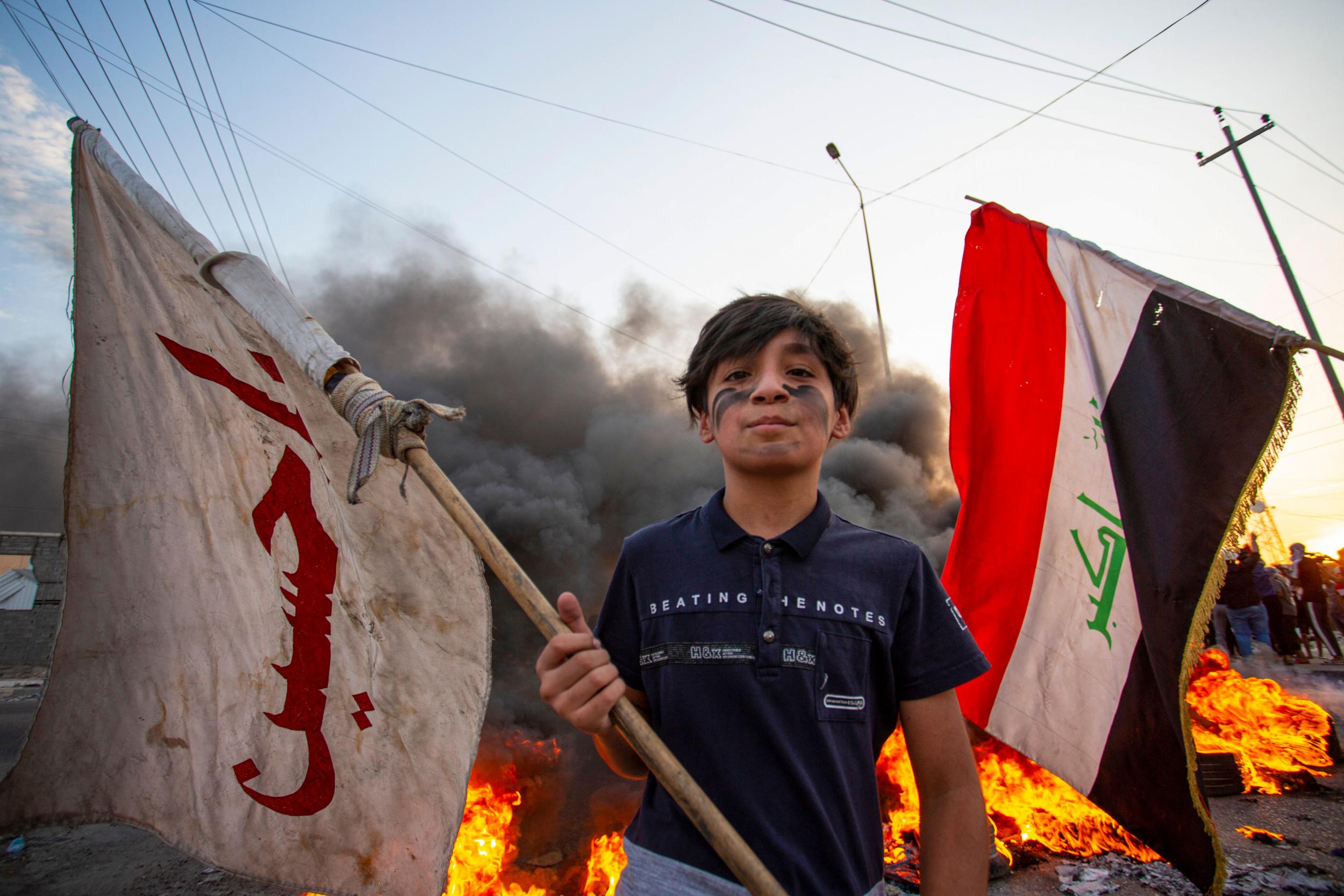‘We feel hopeless’: Iraq says 560 killed in protests, as crippling power cuts spur new rallies
A probe into the deaths will do little to reassure a restive nation, says demonstrator

Your support helps us to tell the story
From reproductive rights to climate change to Big Tech, The Independent is on the ground when the story is developing. Whether it's investigating the financials of Elon Musk's pro-Trump PAC or producing our latest documentary, 'The A Word', which shines a light on the American women fighting for reproductive rights, we know how important it is to parse out the facts from the messaging.
At such a critical moment in US history, we need reporters on the ground. Your donation allows us to keep sending journalists to speak to both sides of the story.
The Independent is trusted by Americans across the entire political spectrum. And unlike many other quality news outlets, we choose not to lock Americans out of our reporting and analysis with paywalls. We believe quality journalism should be available to everyone, paid for by those who can afford it.
Your support makes all the difference.The Iraqi authorities have admitted 560 people have been killed since October in anti-government rallies, as the country’s interior minister said police officers shot protesters using personal hunting rifles.
Iraq has been rocked by months of nationwide protests as thousands of Iraqi youth have taken to the streets to decry rampant corruption, poor services and unemployment. Security forces have used live ammunition and tear gas to disperse crowds killing and maiming thousands.
On Thursday, Hisham Dawood, a political advisor to the country’s new prime minister Mustafa al-Kadhimi, announced that hundreds had died in the clashes without going into detail.
He said the government will form a fact-finding committee to determine the circumstances of the deaths, adding that the authorities regard “all victims of the protests as martyrs”. Rights groups have, however, cast doubt on how effective such a body would be.
Protesters meanwhile vowed to continue their rallies, telling The Independent that a probe into the violence was not going to solve Iraq’s multitude of woes.
Separately the country’s interior minister, Othman al-Ghanimi, said that two protesters killed in Baghdad last week were gunned down by officers using “personal hunting rifles”.
The two demonstrators were shot during rallies on Monday against the government’s electricity cuts, as temperatures in Iraq reached record highs. The policemen have been suspended while investigations are underway.
One protester, who was among those temporarily detained last year by militiamen for joining the rallies, told The Independent that while Thursday’s announcement was positive, most of the youth remain disillusioned.
“Many have lost faith in the authorities. The majority think the government cannot control the Iran backed militias,” said the demonstrator, who asked to remain anonymous citing security fears.
“Everything is still the same, corruption means we have mass blackouts. Most young people still cannot find jobs, they feel hopeless, the internet is bad, the streets unpaved.”

Belkis Wille of Human Rights Watch said the probe was a “positive acknowledgement” of the wrongdoing by the security forces, but said several fact-finding commissions had been formed in the past but held few to account.
HRW is also concerned that while the government has repeatedly stated that officers cannot fire on protesters, it is a regular occurance during demonstrations.
“Either government officials are not in control of the security forces or the most senior officials are publicly stating commitments but not taking measures to ensure those orders are being enforced,” she said.
The protests started to dwindle earlier this year following restrictive measures to contain the spread of the coronavirus pandemic, which official figures say has infected over 120,000 people and killed at least 4,600 more.
But in recent days, rallies have surged again due to lengthy power outages as the summer’s scorching tempers topped 50 degrees Celsius.
Mr Dawood did not specify the breakdown of the 560 death toll but in February, the Iraqi Observatory for Human Rights announced a similar number of deaths, saying that 556 people, including 17 security personnel, had been killed during the protests.
Many have lost faith in the authorities. Everything is still the same
He did promise the families of the dead would receive 10m Iraqi dinars in compensation, along with a plot of land. However, it is unclear how the cash-strapped government can afford the payouts.
Rights activists, which repeatedly blame Iran-backed militias for killing and abducting protesters, insist the promise of compensation should not override the need to hold the killers accountable.
Iraq is struggling in the wake of an economic crisis spurred by low oil prices, but also decades of rampant corruption.
Tensions have soared as hours-long blackouts have increased.
A senior electricity ministry official told Associated Press this week that the national power supply fell short by 10,000 megawatts this summer, down 1,000 megawatts compared to last year, due to lack of maintenance in several power plants because of meagre funds.
Ali al-Saffar at the International Energy Agency, a Paris-based NGO, told The Independent the power shortages were anchored in crumbling infrastructure, increased demand, legacy issues, corruption and people illegally siphoning off electricity from the main grid.
He warned of further protests as it would be hard for the new government, which was only sworn into office in May, to make substantial improvements quickly.
“Electricity and water were among the key issues spurring protests last year. It is a constant reading of government failure and reaches every household multiple times a day,” he told The Independent.
“You can’t mask it.”
Join our commenting forum
Join thought-provoking conversations, follow other Independent readers and see their replies
Comments